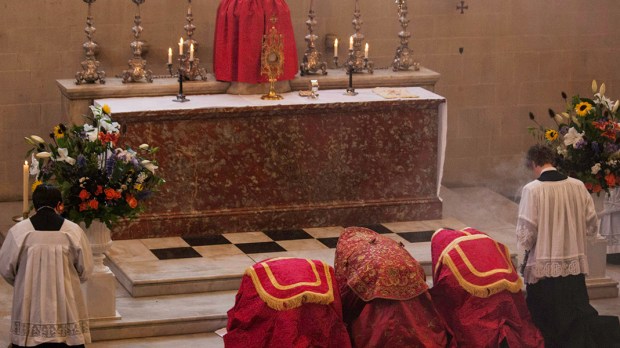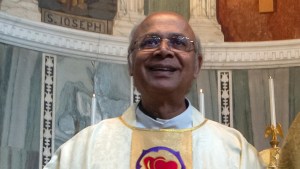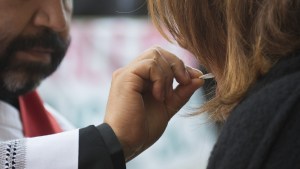Anglicans continue to follow to this day a tradition of Western Christianity that is rooted in the Church of England. While there are many variations to this tradition, there are some Anglicans who are closer to Catholicism than most Protestants.
For this reason, Pope Benedict XVI helped establish the Ordinariate of Our Lady of Walsingham to welcome Anglicans who wished to enter into full communion with the Catholic Church.
He explained his reasoning in the apostolic constitution Anglicanorum coetibus.
In recent times the Holy Spirit has moved groups of Anglicans to petition repeatedly and insistently to be received into full Catholic communion individually as well as corporately. The Apostolic See has responded favorably to such petitions. Indeed, the successor of Peter, mandated by the Lord Jesus to guarantee the unity of the episcopate and to preside over and safeguard the universal communion of all the Churches, could not fail to make available the means necessary to bring this holy desire to realization.
The Ordinariate allows for many Anglican traditions to be carried over into the Catholic Church, such as the following permitted by Benedict XVI:
Without excluding liturgical celebrations according to the Roman Rite, the Ordinariate has the faculty to celebrate the Holy Eucharist and the other Sacraments, the Liturgy of the Hours and other liturgical celebrations according to the liturgical books proper to the Anglican tradition, which have been approved by the Holy See, so as to maintain the liturgical, spiritual and pastoral traditions of the Anglican Communion within the Catholic Church, as a precious gift nourishing the faith of the members of the Ordinariate and as a treasure to be shared.
The Ordinary, in full observance of the discipline of celibate clergy in the Latin Church, as a rule (pro regula) will admit only celibate men to the order of presbyter. He may also petition the Roman Pontiff, as a derogation from can. 277, §1, for the admission of married men to the order of presbyter on a case by case basis, according to objective criteria approved by the Holy See.
Essentially this means that, with a few modifications, Anglicans can celebrate Mass as with the texts they are familiar with in their tradition.
Also, married Anglican pastors can more easily be admitted to the priesthood, though a celibate priesthood is still maintained as the norm.
Pope Benedict XVI’s constitution was dated November 4, 2009, though, according to the Ordinariate’s website, it took until “January 13, 2011, [when] the three former Anglican bishops were ordained to the diaconate in the chapel of Allen Hall Seminary, Chelsea, by Bishop Hopes, and to the sacred priesthood by Archbishop Vincent Nichols on Saturday January 15, 2011.”
Furthermore, “The Personal Ordinariate of Our Lady of Walsingham was erected by decree of the Congregation for the Doctrine of the Faith on the same day [January 15, 2011].”
For Anglicans who are looking to join the Catholic Church, the Ordinariate is a perfect option that respects the authentic traditions of the church that developed in England.



